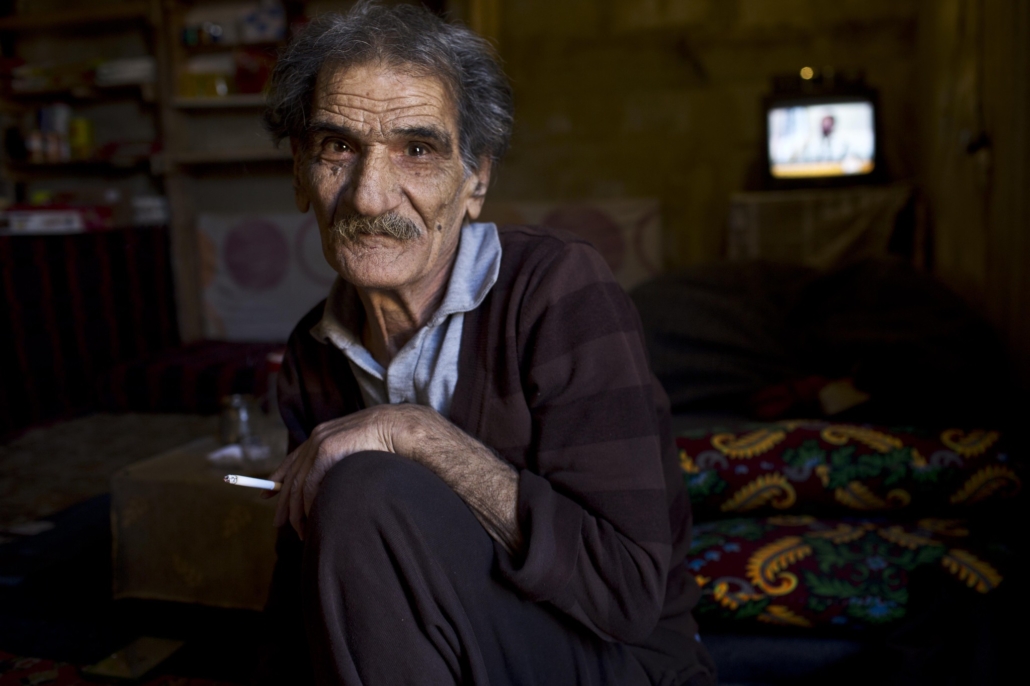Addressing the Neglect of Elderly Syrian Refugees’ Health

More than 5 million Syrian people fled their homes to neighboring countries, such as Lebanon and Jordan, due to mass displacement in the wake of conflict. Many of these refugees are older people with different health issues who seek assistance. Despite the best efforts of the humanitarian response, some elderly Syrian refugees’ health is neglected due to a lack of data, institutional biases and underfunding.
Identifying the Prevalence of Health Issues
As a result of the demands of the current Syrian refugee crisis, Lebanese health and social workers have identified the prevalence of non-communicable diseases among older Syrian refugees, such as diabetes, blood pressure, high cholesterol and heart disease. Additionally, psychologists have observed that many people have to confine themselves to homes due to bone and joint complications, leading to social isolation and mental health problems. Elderly Syrian refugees’ health is neglected because of poor hygiene and access to clean water.
This, along with the fact that many people live in small, cold tents with many people living in it, leads to pulmonary complications and skin disorders like scabies. Additionally, lack of food causes malnutrition, which impairs their immune system, making them susceptible to diseases such as flu and diarrhea.
According to a 2014 Handicap International and HelpAge International report, many of their patients with Syrian refugee status suffer from mental illnesses such as depression, anxiety, post-traumatic stress disorder and psychosis. HelpAge International’s Chief Executive Officer, Toby Porter, claims that the lack of psychosocial care for older people negatively impacts their family’s well-being.
Senior Refugees Face a Variety of Problems
In 2021, according to the Vulnerability Assessment of Syrian Refugees in Lebanon (VASyR), primary health care and hospital care were less accessible for households with the lowest expenditures. The study demonstrates that those with the least resources were the least likely to receive the necessary care, likely due to a lack of adequate insurance or the ability to pay out-of-pocket for medical care. Thus, this highlights the need for greater financial support for medical care so that those with the least resources can still access the care they need.
A 2022 Conflict and Health article suggests that there needs to be more awareness of the needs of older refugees in the aid sector, which focuses mostly on children, women and young adults regarding financial support and medical services. Providing assistance to older refugees should be a priority. Social workers have noted that even though hearing aid and eyeglass campaigns are often conducted, they benefit children and young adults.
According to social workers, donors should prioritize older refugees, allowing them to receive adequate medical care and assistance. A Caritas Lebanon Migrant Centre (CLMC) Board Committee member, Kamal Sioufi, commented: “Older refugees have so many needs, which are not yet a priority for the humanitarian aid actors responding to this crisis.”
Urgent Steps Needed for Improved Care
According to a Handicap International and HelpAge International report, it is also essential to improve the accessibility of health care for people with specific needs. It is crucial that psychological distress services are readily available and tailored to meet the needs of individual clients. The health care staff should have training in diagnosing chronic diseases and receive adequate consultation time. Providing complete information about how to manage patients’ conditions will enable them to help them more effectively. Health care professionals should receive essential psychological distress services as well as training on how to assist elderly individuals.
Since 2013, HelpAge International has been working with older Syrian refugees in Lebanon. Around 2,000 patients have benefited from health consultations, nutrition lessons, cooking classes and social events. Furthermore, HelpAge has trained humanitarian and government workers on older people’s health issues.
Working Together
Organizations like HelpAge International have been providing health consultations, nutrition lessons and training for humanitarian workers to better support the elderly Syrian population. Continued efforts and support can potentially improve their living conditions by providing them with the care and assistance they require.
– Simran Raghav
Photo: Flickr
